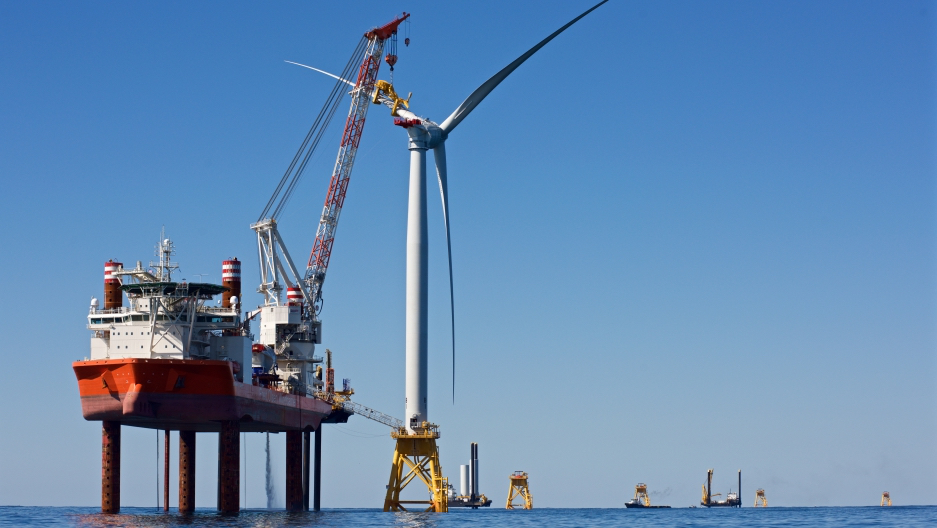As activity in the offshore wind industry picks up, workboat operators, shipyards, maritime schools and marine suppliers won’t want to miss out on the action.
But if you don’t make yourself known, opportunities might blow right on by you.
Wind farms are scheduled to be built in many offshore areas of the East Coast in the coming years, from Massachusetts to North Carolina. Those projects are going to need to hire a slew of local “supply chain” businesses that can provide anything from food and beverages to vessel crews, welding supplies, docks and power tools.
The maritime industry will play an important role in all phases of offshore wind development from planning and construction to operation and maintenance of wind turbines. Shipyards will be building crew transport and support vessels, mariners will be hired to operate them, and maritime schools will be needed to train workers. There will also be work for tugs, barges and coastal ports.
The Business Network for Offshore Wind has established a web portal for businesses to register their names, products and services so that offshore wind developers can easily locate vendors and service providers.
The offshore industry is so new to the U.S., that those involved in it fear that there might not be enough businesses available to supply developers with all the products, services and people that they will need, especially when multiple projects get going at the same time.
“Do we have enough businesses that can come into the industry and do the work?” Liz Burdock, president and CEO of the business network, asked rhetorically during an interview this week for an upcoming WorkBoat article about mariner training for offshore wind farms. She said many companies are not yet well aware of opportunities in this emerging industry.
“We’re trying to reach out and let them know about this opportunity,” she said. In addition to creating the supply chain registry, Burdock said the Network has attended offshore wind conferences and reached out to the offshore oil and gas industry in the Gulf to get the word out.
“Offshore wind is a rapidly growing industry that will be a major economic driver for years to come,” she added.
So far, 657 companies have identified themselves on the Network’s registry as potential vendors.
In New Jersey, Democratic Gov. Philip Murphy recently announced that his state has formed its own online registry to facilitate partnerships between New Jersey businesses and companies involved in wind power development off the state’s coast.
New Jersey is hoping that having a registry of businesses that are eager and able to work with the offshore industry will attract major offshore projects and create more jobs.
To read more about opportunities for the maritime industry in offshore wind, check out my article in the September issue of WorkBoat. Also, our July cover story was on offshore wind, check it out here.




